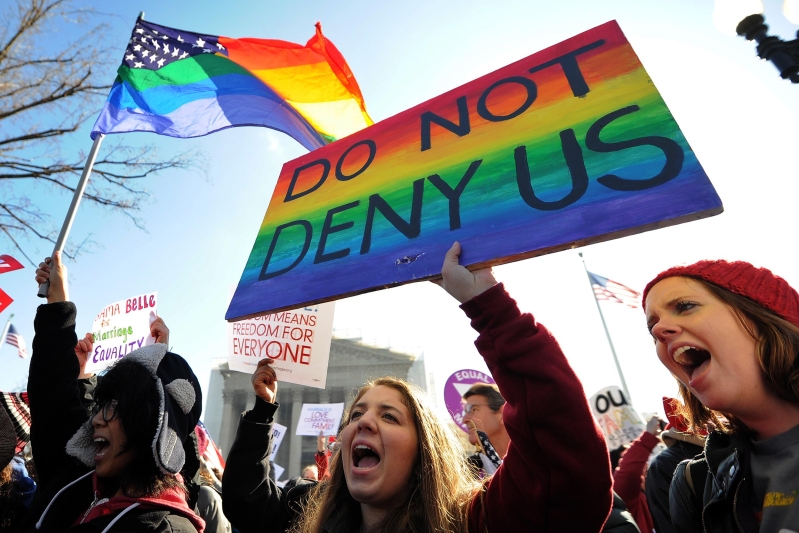
Ireland recently legalized same-sex marriage by a large margin. One columnist thought that Ireland's vote represented a larger trend in Western culture and Christianity's decline.
Pascal-Emmanuel Gobry of The Week argued that the vote to legalize same-sex marriage in Ireland was a stunning development, given that it approved divorce "by only a few thousand votes" just a few years ago. He contended that the Catholic Church "made a bonfire of its credibility as a moral teacher" thanks to both real and exaggerated stories of "burning heretics at the stake and the Spanish Inquisition."
"In the wars of religion, Christians, Protestants and Catholic alike, used the power of the state and the edge of the sword to impose their own sectarian views," Gobry wrote.
Gobry added that the "stark contradiction between the behavior of Christians and the message of Jesus and the Gospel" made many thinkers and intellectuals turn away from Christianity altogether in favor of "secularism and unfettered human autonomy." He came up with an answer as to why Christians lost the same-sex marriage debate in Ireland.
"The short answer is that once contraception and no-fault divorce became widespread, the institution of marriage became emptied of its traditional meaning," Gobry wrote. "It was once an institution that didn't just have to do with the will of those getting married, but one also ordered to higher goals, including in particular the begetting of children."
Gobry contended that there was no reason to ban same-sex couples from marrying after a "new, contractual vision of marriage" was formed both in society and in the law. He thought that based on this reality, the new definition of marriage would eventually extend to "throuples and polyamorous unions."
"The only thing left to do was for most people to get over their prejudice against gay people," Gobry wrote.
He then asked various questions on how Christians were able to protect the institution of marriage "within this reality."
"Before the Sexual Revolution, did they seek to model true Christian marriage, built on love and sacrifice, as Paul writes?" Gobry asked. "Or were they content with the petit-bourgeois institution and its petty cruelties?"
Gobry then asked questions related to the aftermath of the Sexual Revolution.
"After the Sexual Revolution, did they preach against heterosexual contraceptivism, adultery, and divorce, or did they find gay people to be convenient scapegoats, allowing them to define 'Christian marriage' as 'between a man and a woman' (and not much else)?" Gobry asked. "When Christians speak about loving sexually active gay people even as they disapprove of their actions, how credible are they, really?"
Gobry contended that it was easy to blame the rise of secularism through "shadowy, nefarious outside sources" such as "the media, the culture, Hollywood, elites," and "superior tacticians." However, there was something much deeper.
"The simple fact of the matter is that people now known as 'conservative Christians' used to run the world," Gobry wrote. "And we did a lot of good things, but we also did a lot of very bad things. And that, ultimately, is why we're losing."
Gobry elaborated on the Christian "death-and-new-life rite" of baptism to reinforce his point.
"Water symbolizes both death and life. Baptism is supposed to drown the old self and bring a new self to life," Gobry wrote. "Because Christians are supposed to recognize themselves as sinners saved by grace, they cannot talk cogently about anything without starting with introspection and recognizing their own shortcomings."
Goby concluded by stating that although the Christian faith "is built on the surprise of Easter morning," the "victory" Christians are looking for "won't happen without serious introspection first." He ended his column with a quote from Catholic theologian Karl Rahner.
"The number one cause of atheism is Christians," Rahner wrote. "Those who proclaim Him with their mouths and deny Him with their actions is what an unbelieving world finds unbelievable."






